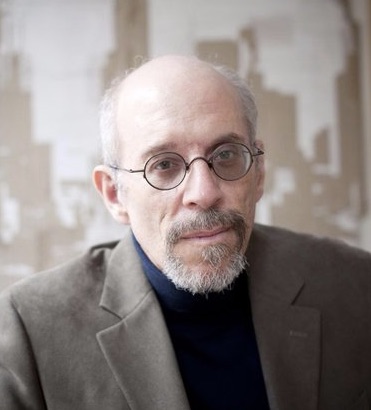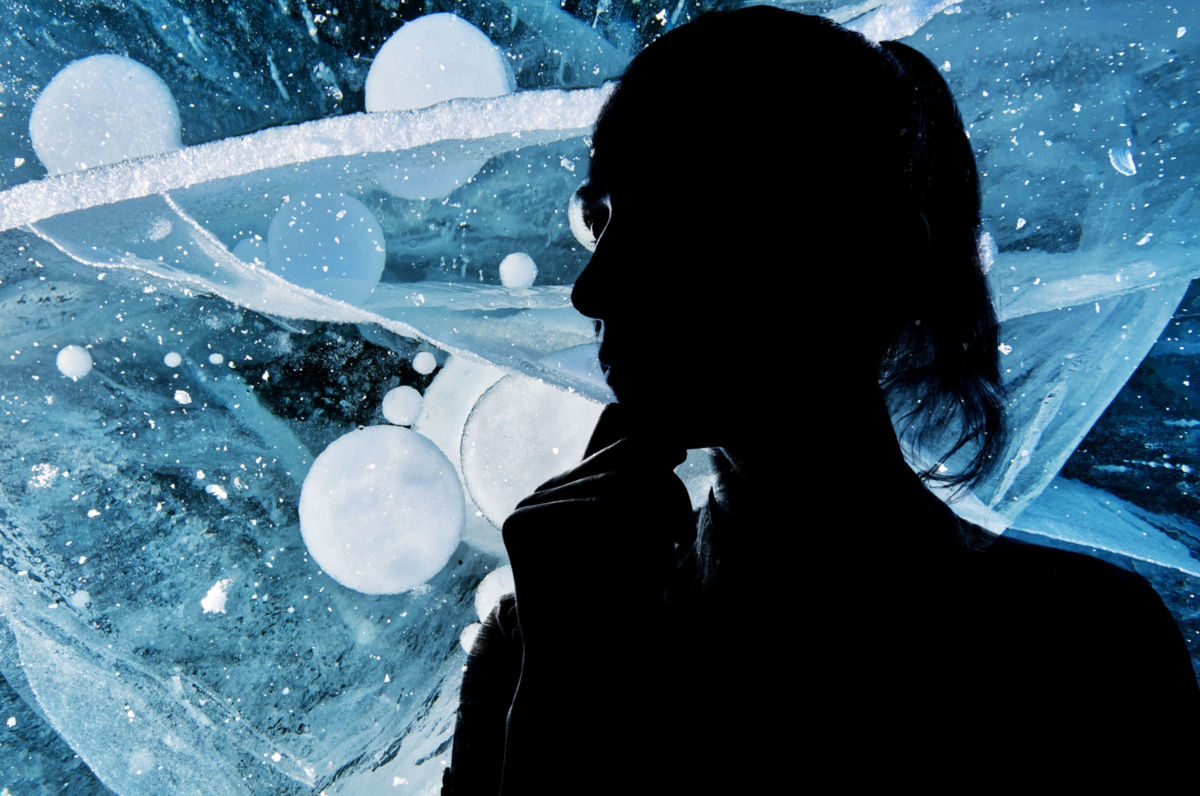Part of the Series
Progressive Picks
Did you know that Truthout is a nonprofit and independently funded by readers like you? If you value what we do, please support our work with a donation.
The newest installment of John Feffer’s Splinterlands series is here. In this interview, Feffer discusses our current climate disaster, and how Frostlands shows a future ruled by corporations after the global order has long disintegrated.
Samantha Borek: Frostlands is a standalone follow-up to your book Splinterlands. How do the two sync up in the timeline of the series?
John Feffer: Splinterlands takes place in 2050 and Frostlands shortly thereafter. But you don’t have to read the first volume to understand what’s going on in the second. Frostlands gives you enough background to understand what has happened to the world since 2019 – the collapse of the European Union and federal states like Russia and the United States, the splintering of the international community, the spread of paramilitaries, the intensification of climate change.
Splinterlands is focused on the “past” – the how and the why of the world’s fragmentation. Frostlands is focused on the “present” – how everyone, including the main character Rachel Leopold, is dealing with the consequences of that fragmentation.
As the newest climate science reports detail that we only have 12 years to mitigate climate change catastrophe, how does Frostlands give us a glimpse into the future?
The human race, in this era, can be likened to a group of frogs sitting in a very big pot of water. Until recently, the temperature of the water had been rising only very slowly, so only a few frogs were paying any attention at all. Today, more and more frogs are aware of the problem. In 2051, the water is near boiling, and everyone is experiencing the impact: disappearing islands and coastlines, extreme weather events that wipe out cities, the rise of a new class of climate refugees.
Rachel Leopold, the 80-year-old glaciologist who is at the center of Frostlands, is focused on ice. Trapped beneath the continental ice shelves and under the permafrost more generally is a vast amount of methane. If released, this methane will represent “game over” in terms of climate change, since methane is a much more potent greenhouse gas than carbon dioxide. So, this is the “ticking bomb” of the book that Rachel must somehow defuse.
To fit this story into the Splinterlands timeline, I was quite optimistic in pushing this methane crisis to 2051. Not only might major methane plumes begin earlier than that, but other factors might push global temperatures above the 1.5 degrees Celsius of warming that represents the tipping point for climate change.
How are Rachel Leopold’s personal and scientific journeys a warning sign of the dangers of centrism when it comes to climate change? What can we learn from her misplaced trust?
When we meet Rachel Leopold, she is living in Arcadia, a sustainable community in what was once Vermont. She conducts her scientific research, manages the community’s greenhouses and also teaches science to Arcadia’s children. In one of her lessons, she tells the climate change story in the form of a fairy tale. An invisible dragon stalks the land, she tells her charges. The heat of its breath destroys crops and kills people. A younger Rachel tried to warn the elders of the dangers of this monster, but they didn’t listen. Comfortable in their positions and confident of their ability to address any threat, the elders dismissed young Rachel as a Chicken Little. Some doubted the existence of the invisible dragon. Others believe that it wasn’t such a big problem.

Frustrated, Rachel retreated to Arcadia where she is determined to cultivate her own garden. Her failing was to trust that facts alone could persuade the most powerful people in politics and industry. She believed that if she could precisely describe the monster of climate change, the elders would marshal all the necessary resources to slay the dragon.
Rachel also ends up embracing local responses to mitigating the effects of climate change. She gives up on global efforts because the international community is fragmenting and disappearing just as surely as the polar ice cap that she once studied. Today, unfortunately, we stand at the edge of just this dual process: the weakening of global institutions at just the moment when we need them the most to address global problems.
The lessons are clear. The climate change threat requires radical action and radical activism. And it requires a sustained effort at a global level. Otherwise, the dragon will rule the land, a land of fire and death.
Arcadia is not the only sustainable community within the world of Frostlands, but there is one in particular that readers are introduced to in the book that provides stark contrast to Arcadia. In what ways does The Farm differ from Arcadia with regards to radical action?
The Farm is an offshoot of Arcadia, the community where Rachel lives. After a dispute over whether Arcadia should arm itself, a group of Arcadians left to form their own community, The Farm. They’re located in a much more remote area, so they don’t wall themselves off or maintain an arsenal of weapons for self-defense. They are also less enthusiastic about the latest technologies.
The Farm is much closer to the back-to-the-land movement of the 1960s and 1970s in the United States. Only when readers encounter The Farm do they realize that Arcadia is the result of a series of choices and debates and decisions. After all, community is not a given, but a process.
And, of course, the existence of The Farm ties into the final twist in the plot. But I don’t want to give away any spoilers….
While the book is mostly about climate change, there are some other factors discussed like the pharmaceutical industry and increased militarism. How do these play a part in the climate story as a whole?
In the world of Frostlands, the connective fiber of the international community has largely disappeared. So, in the absence of a global response, climate change has accelerated, with the predictable results. What remains of institutional armies are busy trying to gain access to dwindling resources or to protect new arctic sea lanes. Paramilitaries, meanwhile, are trying on a much smaller scale to gain control of areas in the new temperate zones. Even sustainable communities, like the one where Rachel lives, have compromised in this environment by acquiring weaponry to defend themselves. The world is devolving into a war of all against all.
The only international institutions that have survived in this anarchic world are corporations. In Frostlands, a large corporation involved in genetic engineering is effectively dictating global policy. It has adapted to a world of climate change and, indeed, is attempting to profit off it. All those who are suspicious of international organizations and dislike the overwhelming power of sovereign states should realize that the forces powerful enough to replace them – military and corporate institutions – would represent a significant step backward if they took over.
What roles do the Artificial Intelligences (AI), Rupert and Karyn, play in a book that’s so clearly about humanity?
AI has become a major part of our everyday lives in 2019, either in the foreground as part of our phones or in the background in the digital infrastructure of society. Thirty years from now, based on current trends, AI will play an even greater role in our lives. So, I knew that I would want to have AI characters in Frostlands that would be on par with the human characters.
In the novel, Rupert and Karyn are AI, but they are as flawed as the humans. They have their own peculiar frailties, their specific “bugs.”
But Karyn has another special feature. She doesn’t know that she’s AI. And she’s an artist. Have these qualities been programmed into her, or has she crossed the threshold into sentience? That will be a central issue in the third book.
Press freedom is under attack
As Trump cracks down on political speech, independent media is increasingly necessary.
Truthout produces reporting you won’t see in the mainstream: journalism from the frontlines of global conflict, interviews with grassroots movement leaders, high-quality legal analysis and more.
Our work is possible thanks to reader support. Help Truthout catalyze change and social justice — make a tax-deductible monthly or one-time donation today.
